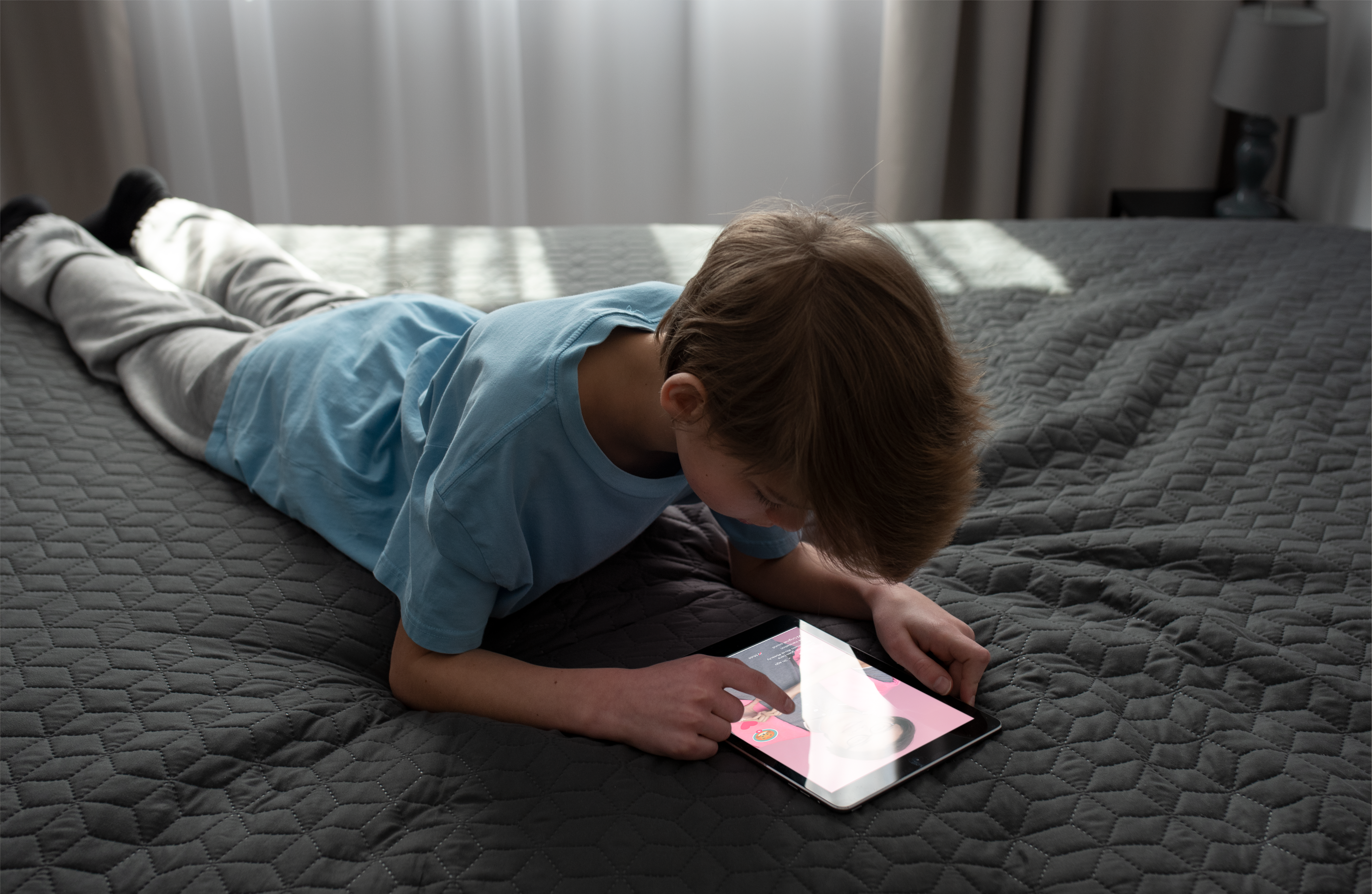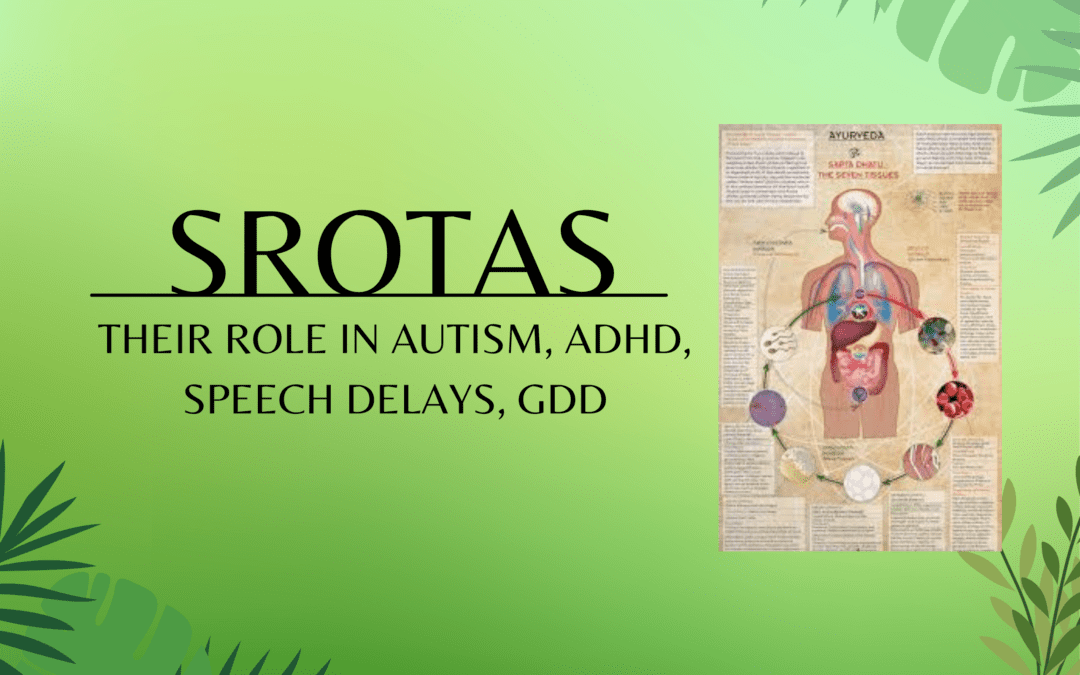My child is 3 years old and has speech issues. He doesn’t seem to listen or respond to us. The doctors have diagnosed virtual autism. Ma’am, do you think you could help us out? We received this message from a parent concerned about their child’s health. Just like an autism diagnosis is not the end of the world, neither is virtual autism. However, taking the right steps to reverse the symptoms is crucial for your child’s health. In the following blog, we will walk you through virtual autism and how you can reverse the symptoms through Ayurveda.
What is Virtual Autism?
Virtual Autism is a term invented by Clinical Psychologist Marius Teodor Zamfir. It refers to the motor, sensory and socio-affective scarcity, found in children from 0-3 years who have excess screen time. While the symptoms of virtual autism and ASD are quite the same these two are different conditions. Since we are constantly moving into a world backed by digital innovations, parents need to understand what virtual autism is and how they can prevent it in their kids, especially from 18-32 months.
What are the causes of Virtual Autism?
Virtual autism is a condition where kids exhibit some symptoms similar to autism kids due to excessive exposure to digital devices. Here are some common causes of this development:
- Excessive Screen Time
Spending too much time immersed in digital devices like smartphones, tablets, video games, and television can interfere with critical social, emotional, and communication development in children, leading to atypical behaviours. Excessive screen exposure from a very young age may limit opportunities for real-world interaction and impair a child’s ability to effectively engage in face-to-face human connection. This can disrupt the learning of social cues, facial expressions, body language, and conversational skills.

- Limited Physical Activity
Excessive technology use often implies less time engaged in active outdoor play, sports, or physical hobbies. Lack of movement and exercise can manifest in restlessness, agitation, poor concentration, and impulsive behaviours. The sensory input and motor development provided by physical activities is important for emotional regulation, focus, and appropriate social conduct.
- Absence of Balanced Lifestyle
A child’s day should consist of a variety of activities including interactive playtime, learning games, outdoor exploration, socializing with family/friends, stimulating hobbies, physical activities, and limited screen use. A balanced lifestyle provides the diversity of experiences and interactions essential for healthy development. An unbalanced life centred solely around screens cannot cultivate the same cognitive, emotional, and social skills.
- Lack of Face-to-Face Interaction
Human beings require in-person social interaction from birth to develop healthy socialization and communication abilities. Virtual contact cannot replace the nuanced back-and-forth of real-life conversations, joint play, and interpersonal relationships. Without sufficient in-person engagement with parents, siblings, peers, and community members, children may struggle to build empathy, cultivate emotional intelligence, and read non-verbal signals. This can contribute to symptoms mimicking autism.
What are the Symptoms of Virtual Autism?
The symptoms of virtual autism vary, some common ones are:
- Reduced Attention Span
Habituation to constant digital stimulation rewires the brain’s reward pathways and diminishes the ability to maintain focus. Children lose interest and are distracted easily without high-stimulus screens.
- Speech Delay
Learning speech and language relies heavily on back-and-forth live interactions. Without sufficient face-to-face exchange, children may experience lags in reaching language milestones and struggle with speech delay.
- Hyperactivity
Excessive digital stimulation can overwhelm a child’s nervous system, making it difficult to self-regulate and manifesting in impulsive behaviour, constant motion, and lack of focus. Without sufficient outdoor playtime for releasing energy, hyperactivity may increase.
- Difficulty with Emotional Regulation
Excessive screen time impacts the development of self-regulation skills. Children may lack strategies to calmly work through emotions like anger, sadness, or disappointment. This can lead to emotional dysregulation.
- Frequent Irritability
The constant dopamine spikes from screens may shorten fusses and frustrations in kids, leading to frequent outbursts when denied access to devices. Irritability can also arise from a lack of quality rest.
- Disinterest in Non-Digital Play
Preoccupation with screens can limit interest in hands-on creative play, physical activities, and social interactions. Kids may resist traditional toys and games.
- Impaired Social Skills
Lack of in-person interactions from a young age hinders the ability to pick up on nonverbal cues like facial expressions, body language, and tone of voice – key to social communication. Empathy and conversation abilities suffer.
Dr. Santhisree Bheesetti explains though the symptoms of virtual autism are similar to autism, the reasons for this development are lack of face-to-face interaction and excess screen time. If you notice these symptoms in your kid, it’s recommended to seek the professional help of an Ayurvedic specialist to provide the best holistic care to them.
How to reverse Virtual Autism Symptoms?
If you’re looking for effective therapies to reverse the symptoms of virtual autism then Ayurveda has the right solutions for your children. As you all know ayurveda is a traditional system of medicine that originated in India thousands of years ago. And since it utilizes a holistic approach to health and wellness, focusing on harmonizing the mind, body, and spirit, it doesn’t have any side effects. Some Ayurvedic therapies that may help counteract virtual autism symptoms include:
- Panchakarma Treatments
Panchakarma is a detoxification process that uses various cleansing therapies to remove accumulated toxins from the body and balance the doshas (energies). Specific treatments like abhyanga (oil massage), and shirodhara (pouring oil on the forehead) help relax the nervous system, reduce hyperactivity, and promote improved behaviour and social skills.
- Internal Medicine
According to Dr Santhisree Bheesetti, ayurveda specialists prescribe ayurvedic remedies and formulas that are hand-picked to nourish the nervous system, support brain function, and stabilize mood and cognition.
- Dietary Modifications
You can also make some dietary changes to reverse the symptoms of virtual autism. Eliminating food additives, stimulants, and processed foods, while increasing fresh, sattvic (pure) foods like fruits, vegetables, legumes, and whole grains can improve gut health and reduce anxiety, hyperactivity, and sensory issues.
- Lifestyle Modifications
There’s nothing you can’t achieve with a good and healthy lifestyle. The same goes for your kid’s health. Getting them adequate sleep, engaging in regular exercise and outdoor play, practising yoga and meditation, and spending more quality time with family can balance their energy levels, reduce irritability, and cultivate social-emotional skills.
- Massage Therapies
Ayurvedic specialists also suggest massage techniques like head massage, foot massage, naval massage and garshana (dry brushing) which come into Sree Prathama Ayurvedam’s Panchakarma treatment, to stimulate circulation, calm the nervous system, promote deeper sleep, and release accumulated stress and toxicity.
Conclusion
Don’t let pixels replace the hugs. Understand that virtual autism is real and it requires proper treatment. Also, remember that the goal of Ayurveda is to restore balance on all levels – physical, mental, emotional, and spiritual. By addressing symptoms of virtual autism holistically, Ayurvedic medicine aims to support children’s overall health, development, and well-being. So, choose what’s right for them, CHOOSE AYURVEDA.
For more details, please contact us at +91 9989759719




Your blog post beautifully elucidates the concept of virtual autism and offers valuable insights into reversing its symptoms through Ayurveda. It’s crucial to prioritize holistic approaches for children’s well-being in today’s digital age.
Thank you for your thoughtful comment! I’m glad you found the post insightful.
Behavior issue
Please contact us on 9989759719 ma’am for any support or guidance.